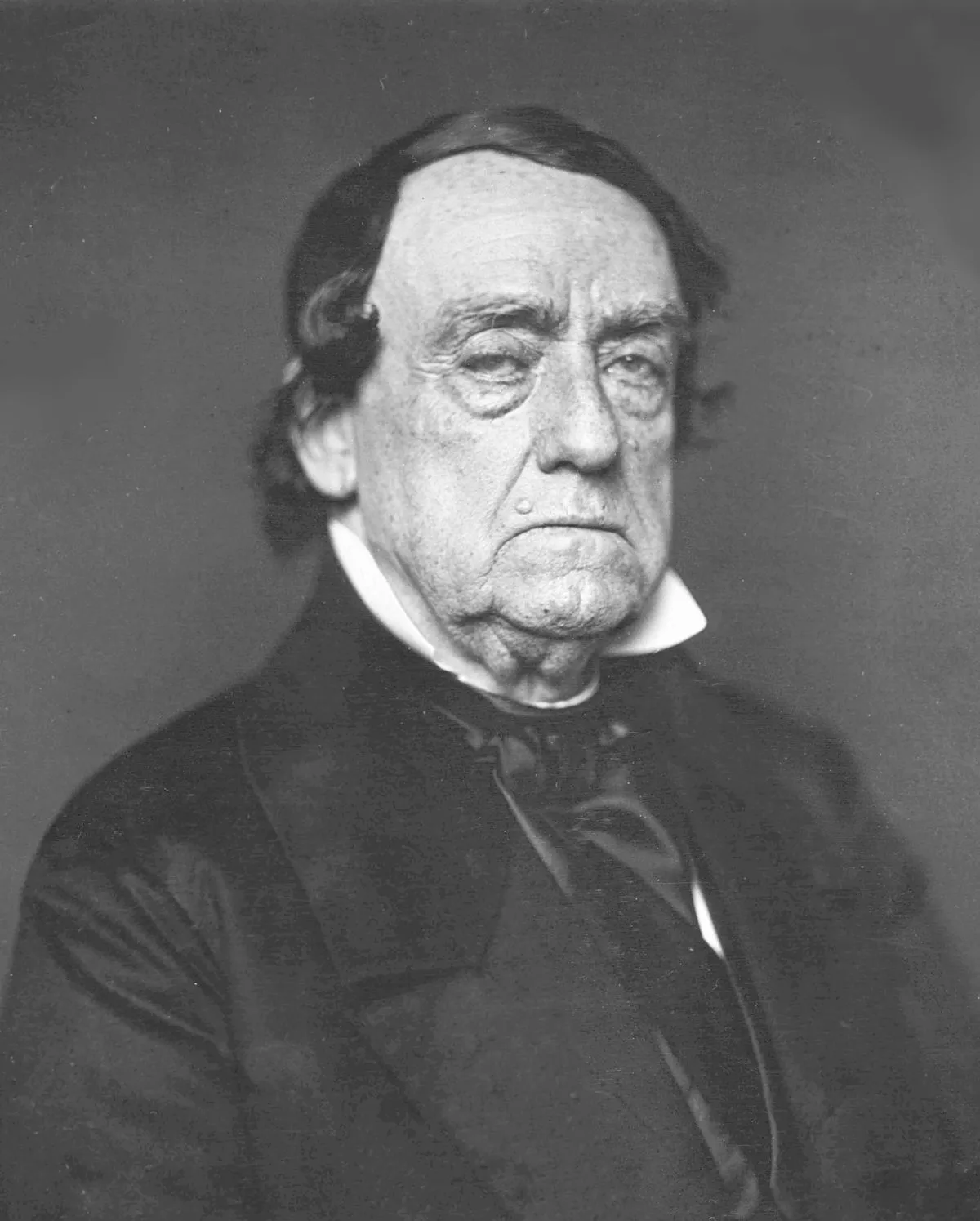 1.
1. Lewis Cass was a United States Army officer and politician.

 1.
1. Lewis Cass was a United States Army officer and politician.
Lewis Cass represented Michigan in the United States Senate and served in the Cabinets of two US Presidents, Andrew Jackson and James Buchanan.
Lewis Cass fought at the Battle of the Thames in the War of 1812 and was appointed to govern Michigan Territory in 1813.
Lewis Cass negotiated treaties with American tribes to open land for American settlement as part of the belief in the 19th century phrase "manifest destiny" at the time, and led a survey expedition into the northwest part of the territory.
Lewis Cass resigned as governor in 1831 to accept appointment as Secretary of War under Andrew Jackson.
Lewis Cass returned to the Senate in 1849 and continued to serve until 1857 when he accepted appointment as the Secretary of State.
Lewis Cass unsuccessfully sought to buy land from Mexico and sympathized with American filibusters in Latin America.
Lewis Cass resigned from the Cabinet in December 1860 in protest of Buchanan's handling of the threatened secession of several Southern states.
Lewis Cass's parents were Molly Cass and Major Jonathan Cass, a Revolutionary War veteran who fought under General George Washington at Bunker Hill.
In 1806, Lewis Cass was elected to the Ohio House of Representatives.
Lewis Cass joined the Freemasons, an increasingly popular fraternal organization in that period, being initiated as an Entered Apprentice in what was later American Union Lodge No 1 at Marietta on December 5,1803.
Lewis Cass achieved his Fellow Craft degree on April 2,1804, and his Master Mason degree on May 7,1804.
Lewis Cass served as the first Worshipful Master of the Lodge of Amity in 1806.
Lewis Cass was one of the founders of the Grand Lodge of Ohio, representing the Lodge of Amity at the first meeting on January 4,1808.
Lewis Cass was elected Deputy Grand Master on January 5,1809, and Grand Master on January 3,1810, January 8,1811, and January 8,1812.
On July 19,1812, Colonel Duncan McArthur with a reconnaissance force combined with 150 Ohio infantry troops under Lewis Cass were near the bridge leading to Fort Malden.
On July 28,1812, Colonel Lewis Cass conducted a hit-and-run attack at the Riviere aux Canards driving back a band of Native Americans.
Lewis Cass became colonel of the 27th United States Infantry Regiment on February 20,1813.
Lewis Cass took part in the Battle of the Thames, which saw the death of Tecumseh.
In 1817, Lewis Cass was one of the two commissioners, who negotiated the Treaty of Fort Meigs, which was signed on September 29 with several Native American tribes of the region, under which they ceded large amounts of territory to the United States.
That same year, Lewis Cass was named to serve as Secretary of War under President James Monroe, but he declined the appointment.
In 1820, Lewis Cass led an expedition to the northwestern part of Michigan Territory, in the Great Lakes region in today's northern Minnesota.
In 1830, Lewis Cass published an article in the North American Review that passionately argued that Indians were "inherently inferior" to whites, and incapable of being civilized and thus should be removed from the eastern United States.
Lewis Cass was a central figure in implementing the Indian removal policy of the Jackson administration; Congress had passed the Indian Removal Act in 1830.
Lewis Cass presented his credentials on December 1,1836, and served until he left his post on November 12,1842, when he was succeeded by William R King, who later became the 13th Vice President of the United States under President Franklin Pierce.
Lewis Cass served as chairman of the Committee on Military Affairs in the 30th Congress.
Lewis Cass was a leading supporter of the doctrine of popular sovereignty, which held that the American citizens who lived in a territory should decide whether to permit slavery there.
Lewis Cass's nomination caused a split in the Democratic Party, leading many antislavery Northern Democrats to join the Free Soil Party, which nominated former President Martin Van Buren.
Lewis Cass was the first non-incumbent Democratic presidential candidate to lose an election and the first Democrat who was unsuccessful in his bid to succeed another Democrat as president.
Lewis Cass made another bid for president in 1852 but neither he nor rival Democratic contenders Buchanan and Stephen Douglas secured a majority of delegates' votes at the Democratic Convention in Baltimore, and the party went with Franklin Pierce instead.
On March 6,1857, President James Buchanan appointed Lewis Cass to serve as Secretary of State as a consolation prize for his previous presidential runs.
Buchanan, weighing many of the other options for Secretary of State, considered that Lewis Cass was the best choice to avoid political infighting and sectional tensions.
Lewis Cass, who was retiring from the Senate, but not eager to leave Washington and return home to Michigan, immediately accepted.
Lewis Cass attempted to buy more land from Mexico, but faced opposition from both Mexico and congressional leaders.
Lewis Cass resigned on December 14,1860, because of what he considered Buchanan's failure to protect federal interests in the South and failure to mobilize the federal military, actions that might have averted the threatened secession of Southern states.
On May 26,1806, Lewis Cass married Elizabeth Spencer, the daughter of Dr Joseph Spencer Jr.
Lewis Cass's paternal grandfather was Joseph Spencer, a Continental Congressman who was a major general in the Continental Army.